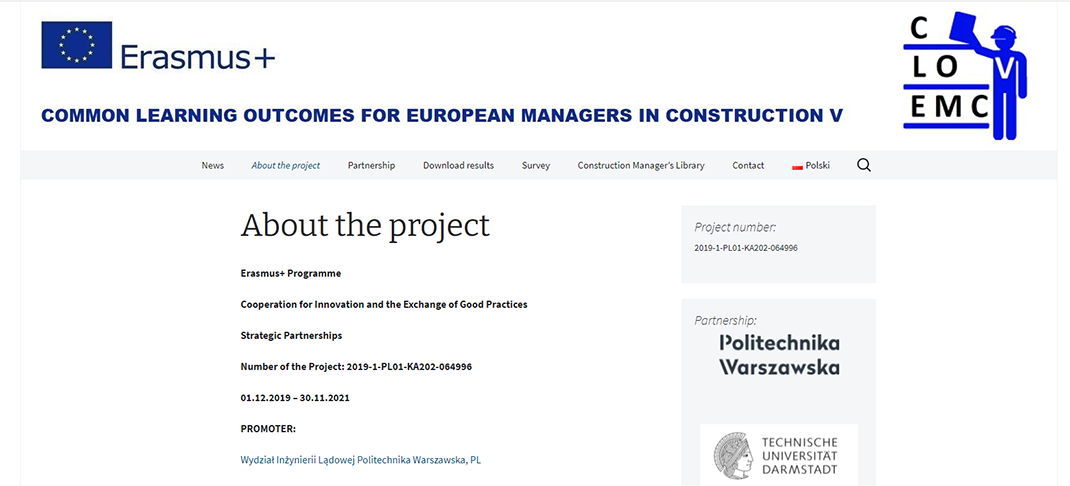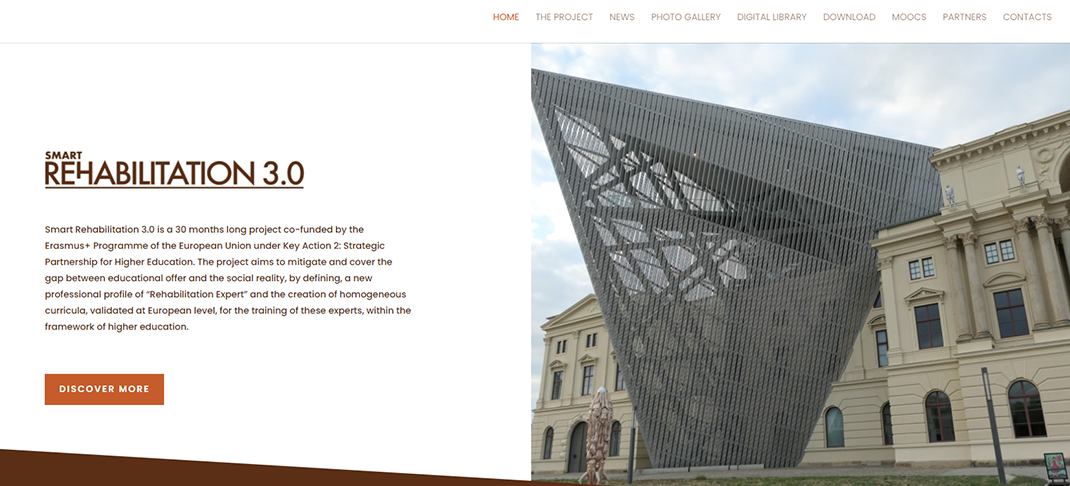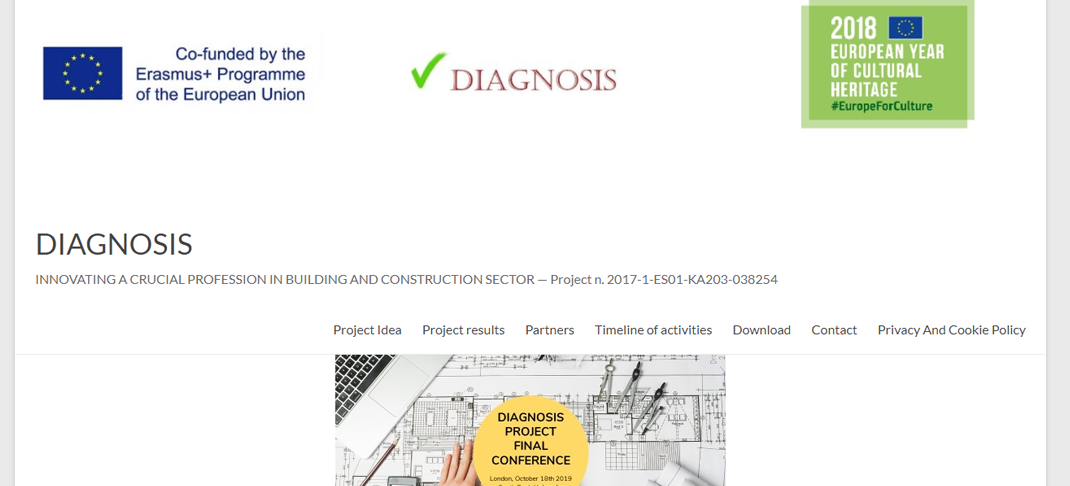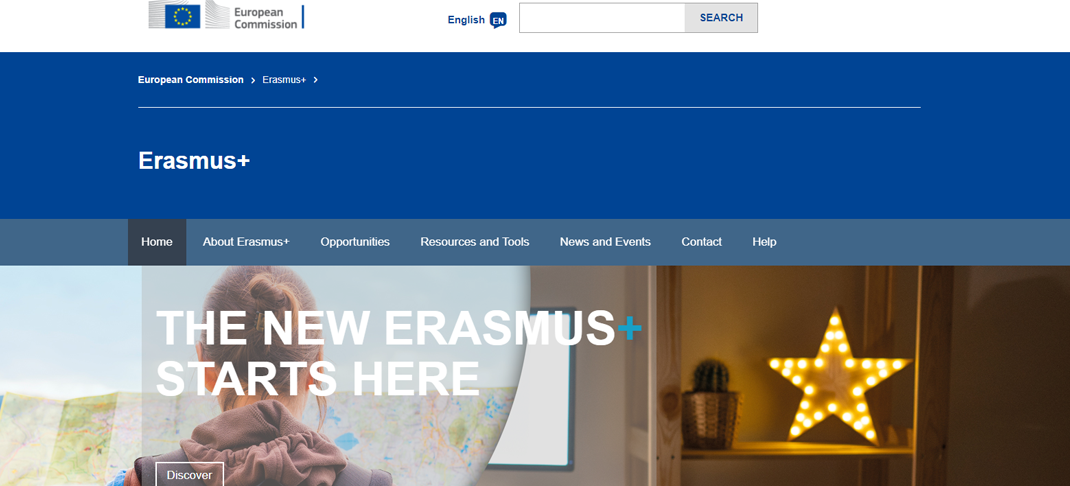AEEBC PROJECTS
PROJECT INFORMATION
The AEEBC is involved in projects covering all aspects relevant to the profession of building surveyors and construction experts. It is recognised within the AEEBC that each member country faces on going legislative changes related to their professions that is largely driven by EU legislation. The opportunity to disseminate and discuss each countries approach, understanding and implementation is key to the ethos of the AEEBC. The AEEBC is also involved in Leonardo De Vinci Programmes with member countries.
These programmes link policy to practice in the field of vocational education and training (VET). Projects range from those giving individuals the chance to improve their competences, knowledge and skills through a period abroad, to Europe-wide co-operation between training organizations. The programme funds a wide range of actions, notably cross-border mobility initiatives; co-operation projects to develop and spread innovation; and thematic networks. The AEEBC has sponsored a successful Leonardo da Vinci (LdV) bid for funding which focuses on the creation of manuals promoting common platforms of managerial qualifications in the field of construction.
The organization comprises member delegates representing the national organizations meet at a general assembly bi–annually where the many issues concerning the building surveyor/expert are debated and a number of construction environmental and pathology related workshops.
3M Site

Context & Background:
The EU construction market is diverse and includes a significant number of migrants. However, these migrants may face challenges in integrating into the new environment and may have difficulty understanding and working with locally based management and workers who have different cultures, religions, or ethnicities. In addition, the construction industry has a history of poor health and safety practices and is a significant contributor to environmental pollution.
Aim:
The aim of this project is to facilitate the integration of migrants into the EU construction market and improve inclusion and diversity by helping locally-based management and workers understand migrants and employees with different cultures, religions, or ethnicities. Additionally, the project aims to improve health and safety at construction sites, promote environmentally friendly habits, and improve effective communication and conflict resolution at the construction sites.
Objectives:
MAIN OBJECTIVES OF THE PROJECT:
Facilitate migrants’ integration into the new environment, improving inclusion and diversity of the EU construction market.
Help locally based management, and workers understand migrants, and employees with a different culture, religion, or ethnicity.
ADDITIONAL OBJECTIVES:
Improve H&S level at construction sites, and prevent accidents. Promote green deal policy and environmentally friendly habits.
Improve effective communication at the construction site, and increase knowledge of conflict resolution.
Impact:
The impact of this project is expected to be significant. By facilitating the integration of migrants into the EU construction market and improving inclusion and diversity, the project aims to create a more harmonious and productive working environment. In addition, by improving health and safety practices and promoting environmentally friendly habits, the project aims to protect workers and the environment. Finally, by improving communication and conflict resolution, the project aims to increase efficiency and productivity at construction sites.
Target groups:
The main target groups for this project are local and migrant: construction students, construction workers, construction engineers, construction trainees, construction managers, stakeholders and associations in the construction sector, SMEs and companies (construction sector), VET providers, and universities. Additionally, relevant authorities and organizations involved in the construction industry. The project will also be of interest to other stakeholders such as academics, policymakers, and the general public.
All construction personnel (and people connected to construction) can improve the assimilation and training of migrants at construction sites in the EU.
PRODUCTS OF THE PROJECT WILL BE:
3M teaching methodology and Manuals on:
-Legal, technical, and technological aspects of modern construction site management,
-Sociological aspects of a multi-ethnic and multicultural construction site,
-Occupational health and safety at the construction site,
-Environmental issues of a construction site.
All manuals will be based on experience from 13 countries, written in 3 languages (more foreseen in the future), and developed by a multicultural team of various beliefs, genders, and ethnicities.
3M Site Website
ID4EXCELLENCE project
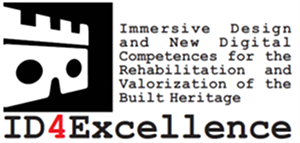
The project also considers the EU Roadmap Opening up Education (04/2013) enhancing education and skills development through new technologies and underlining the "insufficient supply of quality digital contents across languages, subjects and needs".
The construction sector is facing great challenges, not least the current health emergency that forces to rethink the places and spaces of both supply chain and value-chain, from training to design phase, from construction site to use and maintenance.
In this context, the digitization of the sector represents an important driver to face not only the challenges of effectiveness and efficiency to foster, projects innovation, but also the excellence and specialization of the skills, which is of main importance for the industrialization of the sector itself.
Moreover, an immersive design approach to the project innovation could lead to inclusive products and services in order to engage all the actors and stakeholders involved in the process.
Supporting the updating of skills and competences through an inclusive approach to the built heritage intervention, making with the use of new technologies and the combination of Key Enabling Technologies, (KETs), Virtual Reality (VR), Immersive Interactive Experience (IIE) and advanced 3D modelling is the general aim of the ID4EXCELLENCE project.
COMMON LEARNING OUTCOMES FOR EUROPEAN MANAGERS IN CONSTRUCTION V
This project addresses the vocational education and training sectoral priority by improvement of vocational education and training didactic materials of the construction project management and horizontal priority by facilitation of qualification recognition system for managers in construction.
SMART REHABILITATION PROJECT
Smart Rehabilitation 3.0 is a 30 months long project co-funded by the Erasmus+ Programme of the European Union under Key Action 2: Strategic Partnership for Higher Education.
The project aims to mitigate and cover the gap between educational offer and the social reality, by defining, a new professional profile of “Rehabilitation Expert” and the creation of homogeneous curricula, validated at European level, for the training of these experts, within the framework of higher education.
DIAGNOSIS
The project general aim is to deepen knowledge about existing up-to-date technological tools for building assessment through the collaboration among international partners, and consequently to upgrade existing training tools and professional qualifications curricula in order to create a renewed professional profile in building and construction sector.
ERASMUS+
Building and construction sector in Europe is one of the sectors which suffered most the economic crisis in these last few years, and where for many reasons innovation and upgrading of competences is still difficult to develop. One important need of this sector is related to the lack of a specific professional profile: a DIAGNOSTIC EXPERT.
The project general aim is to deepen knowledge about existing up-to-date technological tools for building assessment through the collaboration among international partners, and consequently to upgrade existing training tools and professional qualifications curricula in order to create a renewed professional profile in building and construction sector.
BIM4PLACEMENT
BIM project is a capacity building project in the area of VET education, promoting cooperation and partnerships among 6 organizations (VET provider, Regional Authority, 2 universities, private company, European Association) and providing new methods for delivering training addressed to a variety of target groups.
Countries involved: Italy, Finland, Norway + one partner (AEEBC) active all over Europe. The project general aim is to deepen knowledge about Building Information Modelling (BIM) as a skills' development training subject for employability goals, upgrading existing training tools and professional qualifications and creating a network to promote work-based learning with special attention to apprenticeship.
LEONARDO DA VINCI VI
The AEEBC has sponsored a successful Leonardo da Vinci (LdV) bid for funding which focuses on the creation of manuals promoting common platforms of managerial qualifications in the field of construction.

